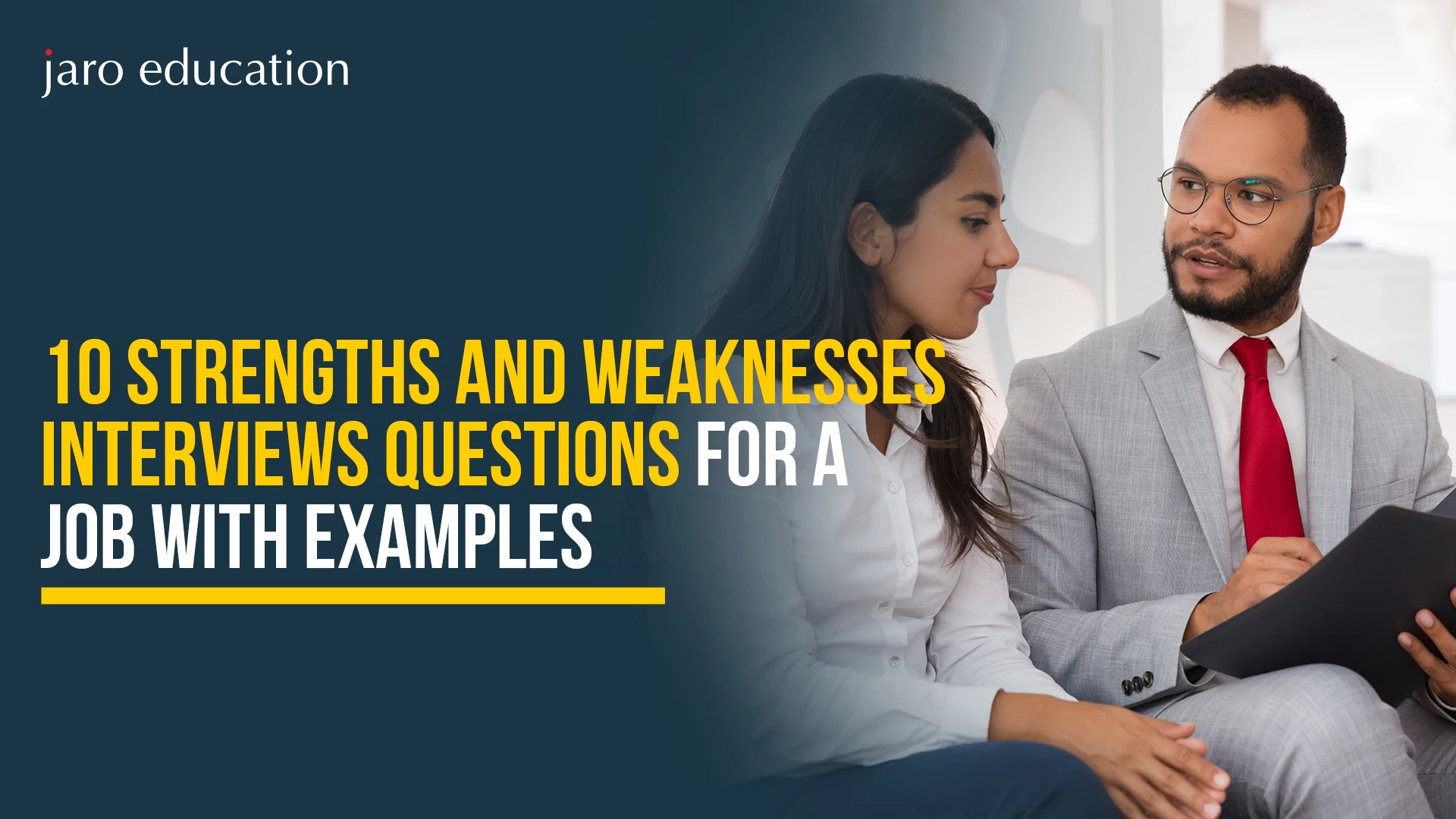10 Strengths and Weaknesses Interviews Questions for a Job with Examples

Table Of Content
- Understanding the Purpose of ‘Strengths’ Question
- 10 Common ‘Strengths’ Interview Questions with Examples
- Understanding the Purpose of ‘Weaknesses’ Question

*freepik.com
Understanding the Purpose of ‘Strengths’ Question
Have you ever appeared for a strengths and weaknesses interview? If not, then understand why an interviewer asks about your strengths. They actually want to know what you are good at and if that skill fits the job role they are hiring for. So, picking a strength that aligns with their requirement is important.
Here, you can use the STAR method –
- S – Situation: Start by describing a specific time or situation.
- T – Task: Explain what you had to do.
- A – Action: Talk about what you did using your strength.
- R – Result: Share the positive outcome of your actions.
To be more specific, say, your strength is teamwork; then you might explain it this way: “In my last excursion from college (Situation), I was responsible for organizing the team. I created a shared schedule and made sure everyone stayed on track (Action). We completed the project early and received top marks (Result).”
This method shows your strength in action and proves how it brings real results. Be confident while answering about your strengths. It will help interviewers consider you for the required job role.
10 Common ‘Strengths’ Interview Questions with Examples
Understanding the Purpose of ‘Weaknesses’ Question
Do not try to act too smart in a strengths and weaknesses interview. Instead, be honest. The ‘weakness’ question is intended to gauge your self-awareness and desire to grow. Avoid giving cliché answers like “I always submit work on time” or “I love to handle loads of work.” This sounds rehearsed and does not really explain anything useful.
Instead, share a real but not critical weakness – something that will not stop you from doing the job. For example, you can say, “I used to feel nervous speaking in front of groups, but I’ve been improving by giving small team updates.”
Always explain what steps you are taking to improve. This shows responsibility and a positive attitude. However, be careful about what you say. Do not talk about weaknesses that can instantly get you rejected, like a lack of time management or succumbing to peer pressure.
Your answer must be strong enough to convince the employer that you understand your strengths and weaknesses. Also, after a strengths and weaknesses interview, the employer must know that you are trying to become better.
10. Common ‘Weaknesses’ Interview Questions with Examples
Conclusion
Hopefully you have mastered the art of cleverly answering each of the strengths and weaknesses interview questions. To prepare for this aspect of a job interview, you need to be aware of yourself. You must know where you lag and where you excel, and based on that, you craft your answers that leave a lasting impression on the interviewer. Also, remember that every weakness is an opportunity to emphasize your commitment to improve. This way, your negatives will turn into positives, and who knows, you may end up getting the job you always wanted.
Now, being prepared for the interview is not enough; you need to be qualified for the position. While academics can prove that, adding something extra to the CV always helps. In this regard, you can look at the Youth Leadership Program from IIM Indore. Apart from all the content that will prepare you for future roles, it will also give you an IIM alumni status.
Frequently Asked Questions
Find a Program made just for YOU
We'll help you find the right fit for your solution. Let's get you connected with the perfect solution.

Is Your Upskilling Effort worth it?

Are Your Skills Meeting Job Demands?

Experience Lifelong Learning and Connect with Like-minded Professionals


